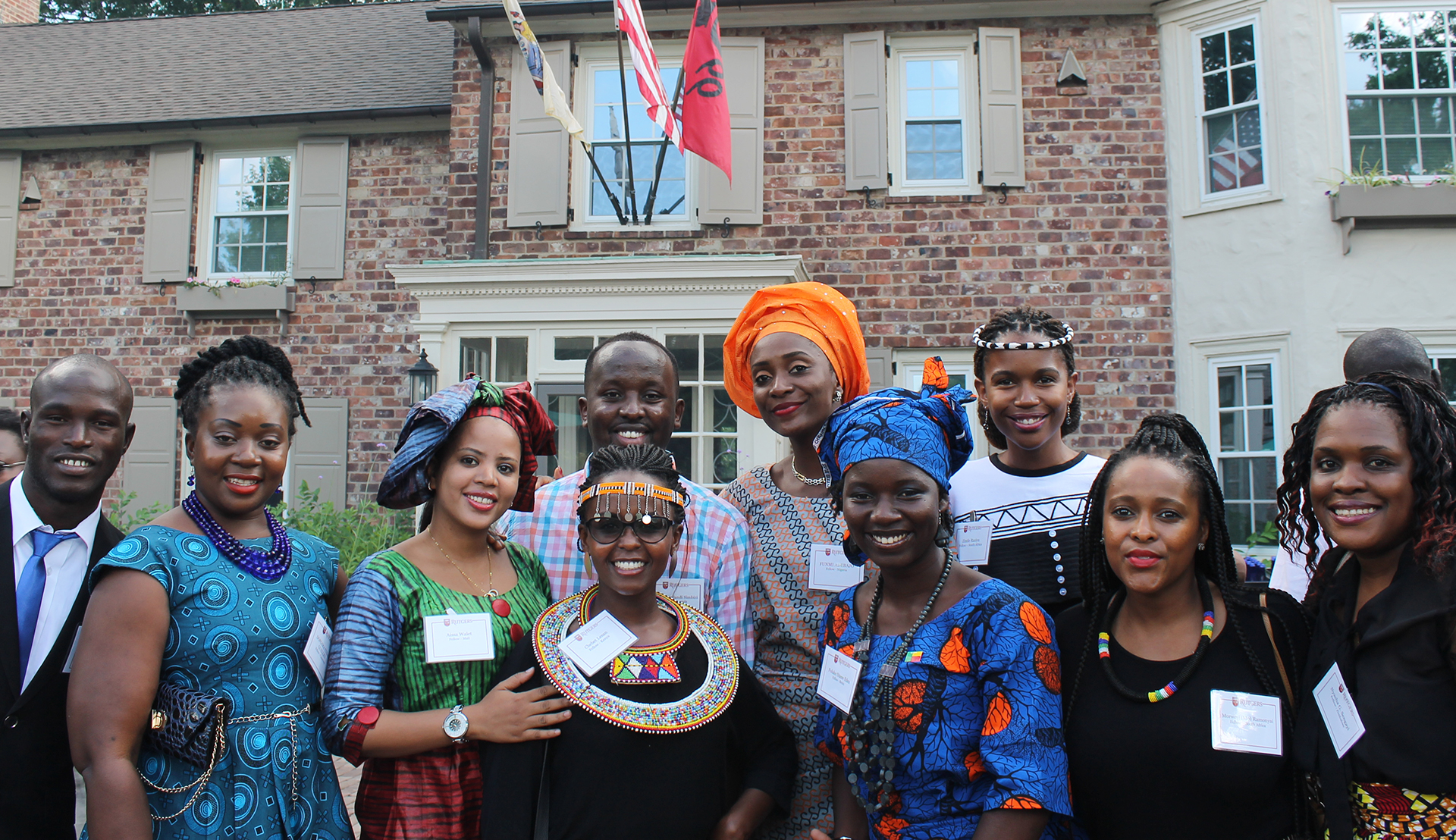Rutgers selected for fifth straight year by U.S. Department of State to host Mandela Washington Fellowship
For the fifth consecutive year, Rutgers has been selected to host the 2018 Mandela Washington Fellowship for Young African Leaders, a flagship program of the Young African Leaders Initiative (YALI).
The fellowship is designed to empower young sub-Saharan leaders through academic coursework, leadership training, mentoring, networking, professional opportunities, and local community engagement. For five weeks beginning in June, Rutgers will host two cohorts of 25 fellows in one of two institutes: one in civic leadership and one in business and entrepreneurship.
Rutgers is the only university partner selected by the sponsor of the fellowship, the U.S. Department of State, to host two institutes this year. The university works closely with the U.S. Department of State’s Bureau of Educational and Cultural Affairs and its implementing partner, IREX, to offer the fellowship.
Rutgers Global is coordinating two partnerships to produce the institutes. Senior program coordinator Greg Costalas of Rutgers Global–Programs has teamed up with Ron Quincy, a professor at the Bloustein School of Planning and Public Policy, and Ousseina Alidou, professor of women’s and gender studies, to create programming for the civic leadership institute.
Kevin Lyons, Rutgers Business School professor, and Johanna Bernstein, assistant dean for international programs at the Department of Chemistry and Chemical Biology, will lead the business and entrepreneurship institute.
Though the civic leadership institute will focus on successful social programs and the business and entrepreneurship Institute will focus on sustainable supply chain management, they have one thing in common at their core: effecting change for the common good. There will be a crossover between the two institutes, with some joint activities including visits to iconic landmarks only found in the New Jersey region, cultural activities, community service projects and meetings with community leaders and university faculty to demonstrate real-world outcomes.
The fellows will also meet with U.S. leaders from private, public, nonprofit organizations, as well as NGOs—and when they return to their home countries, the fellows will continue to develop their skills with support from U.S. embassies, the United States Agency for International Development, the YALI Network, and partners.
That connectivity drives the momentum of the Mandela Washington Fellowship—and the continued application of lessons learned.
Asenath Dande, associate director of international faculty/scholar services at Rutgers Global, connected with 2017 fellow Victor Charo, a public health professional based in Kenya, during a networking reception on campus. Charo, now a public health professional in Kenya, regularly volunteers for Hitaji Development Initiative, Dande’s NGO that addresses challenges—particularly, access to education—faced by young girls and women in Kenya.
“It’s not easy to have on-the-ground support when you live so far away,” Dande said, adding that she will be traveling to Kenya in June 2018 as part of the Mandela Washington Fellowship Reciprocal Exchange.
There, Dande—on behalf of Hitaji Development Initiative—will meet with Charo and local officials, school administrators, girls and parents to establish a mentorship program for girls to participate in during the months when school is not in session. She also aims to establish a vocational training program for girls who dropped out of school or who did not perform well enough to continue on to college.
“Being a part of Rutgers Global has provided me with a lot of opportunities and given me a lot of insights,” she said. “I’ve been able to think outside the box and connect with the right people like [Charo].”
Since 2014, the U.S. Department of State has brought 3,000 young leaders from across Sub-Saharan Africa to the United States to develop their leadership skills and foster connections and collaborations with U.S. professionals. The cohort of fellows hosted by Rutgers will be part of a larger group of 700 Mandela Washington Fellows hosted at 27 institutions across the United States this summer.
At the end of the five-week fellowship program, the fellows will convene in Washington, D.C. for the fifth annual Mandela Washington Fellowship Summit, where they will take part in networking and panel discussions with each other and U.S. leaders from the public, private, and non-profit sectors. Following the summit, 100 fellows will participate in six weeks of professional development training at U.S. non-governmental organizations, private companies, and government agencies.
For more information on the Mandela Washington Fellowship, contact Greg Costalas at gcostalas@global.rutgers.edu.

